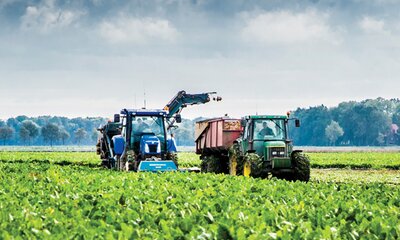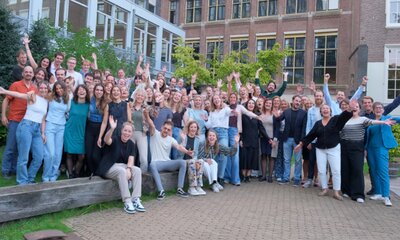Know Your Supply Chain: CSDDD and EUDR
Addressing sustainability risks in the supply chain—such as deforestation and child labor—has been incorporated into legislation in various European countries and at the EU level. The Corporate Sustainability Due Diligence Directive (CSDDD) aims to create a level playing field across Europe. It is part of the Omnibus proposal, unlike other laws such as the EU Deforestation Regulation (EUDR) and the Forced Labor Law. What does this mean for businesses?
In this article, we guide you through the legal framework and provide recommendations on "no regret" measures you can take to address risks in your supply chain. Such measures are precautionary steps that can be taken even when full consensus is still evolving.
Due Diligence in the Omnibus Proposal
The Omnibus proposal presented by the European Commission introduces significant changes to the CSDDD. As discussed in a previous article, the proposal deviates considerably from the original "due diligence principle" outlined in the OECD Guidelines and endorsed by countries like the Netherlands and businesses. The focus shifts from real-world impact on people and the environment, toward a narrower interpretation of regulatory compliance. This has sparked diverse reactions, and a thorough debate on the proposed changes is expected. However, due diligence remains the foundation for many sustainability laws, including the EUDR.
What Is Due Diligence?
The concept of due diligence was introduced in 2011 in the OECD Guidelines, offering a six-step framework to help companies identify, prioritise, and address risks. These six steps are now widely reflected in various sustainability laws.
A key principle of due diligence is that companies must look beyond their direct operations and tier 1 suppliers, to assess the impact throughout their entire value chain. The current version of the CSDDD states that companies bear a broad responsibility to address human rights violations and environmental harm in their supply chain. The law requires companies to map their supply chain and take action to mitigate risks. However, the Omnibus proposal for the CSDDD significantly narrows this focus, restricting due diligence obligations only to tier 1 suppliers and limiting its overall scope.
Supply Chain Responsibility in the EUDR
While the future of the CSDDD remains uncertain, other regulations already incorporate the due diligence principle. A key example is the EU Deforestation Regulation (EUDR).
Starting December 30, 2025, businesses involved in importing, exporting, or bringing palm oil, cocoa, soy, rubber, timber, beef, or coffee (specifically listed in Annex I) on the European market, must prove that these products are deforestation-free and legally compliant.
To achieve this, businesses must complete a due diligence process, including collecting relevant information (e.g., geo-coordinates of production sites), assessing risks associated with those locations, and minimising risks through mitigation strategies.
Additionally, companies must establish a governance system for due diligence, including appointing an EUDR compliance officer, establish procedures for data storage and retention, and provide an annual report on compliance efforts.
The extent of these requirements depends on a company’s role in the supply chain, the specific product category, and whether it qualifies as an SME. However, smart businesses will set up their due diligence processes in a way that allows them to adapt to future regulatory and market requirements.
Our Advice? Take Due Diligence Seriously
Regardless of the legal framework, more and more market players are asking their suppliers about due diligence policies. Here are some key recommendations:
- Know Your Supply Chains – Gain insight into your entire supply chain, including upstream suppliers, to collaborate effectively on sustainability efforts. Well-managed supply chain partnerships also enhance resilience and supply security.
- Integrate Due Diligence into Your Business – A clear commitment to due diligence makes it easier to identify and mitigate risks while ensuring compliance with both existing and upcoming regulations.
- Focus on Real Impact – Avoid reducing due diligence to a compliance checklist. Instead, work alongside suppliers to drive meaningful improvements—which often enhance innovation and strengthen business operations.
- Engage Stakeholders – Involve both internal and external stakeholders in your due diligence strategy and communicate progress transparently, even when tough decisions need to be made.
By taking these steps now, you not only prepare your business for future regulations but also build a more sustainable and resilient enterprise.











